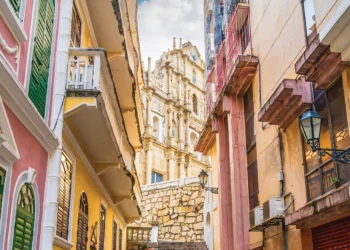Touted as the first integrated casino resort in Europe, Melco Resorts’ City of Dreams Mediterranean is hoping to overcome a raft of early challenges to bring a new era of luxury to the island of Cyprus.
“We’ve got the hardware and we’re proud of the hardware, and our service standards are excellent as well,” explains Grant Johnson, Senior Vice President, Property General Manager of Melco Resorts & Entertainment’s first European venture, City of Dreams Mediterranean in Cyprus. “Now it’s just about market development, because Cyprus isn’t top of mind in a lot of places as a destination for either tourism or gaming.
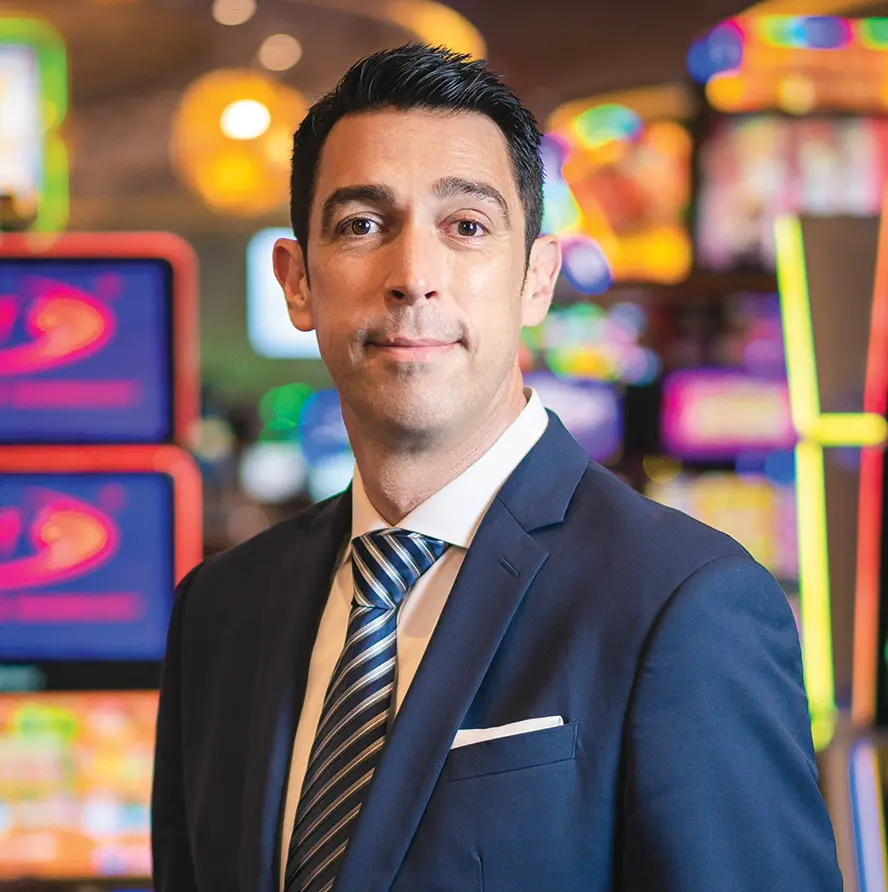
“The future for us is getting out and continuing to spread the word, to draw people here to trial the product, because we’re finding that, as they trial it, they’re having a really good experience and they come back. So that’s what it’s all about for us.”
Opened last July at a cost of some €600 million (US$660 million), CoD Mediterranean is touted as Europe’s first true integrated casino resort. Located in Limassol on the southern coast of Cyprus – about a 50-minute drive from the main airport in Larnaca – it blends the high-end luxury that is typical of Melco’s Asian IRs in Macau and Manila with a casual beachside vibe reflective of the seasonal summer crowd that descends on the island each year.
“It was Lawrence’s vision to bring the product and the quality of City of Dreams and what we do in Asia to this part of the world and a whole new customer set,” Johnson explains, a reference to Melco’s ambitious Chairman and CEO, Lawrence Ho.
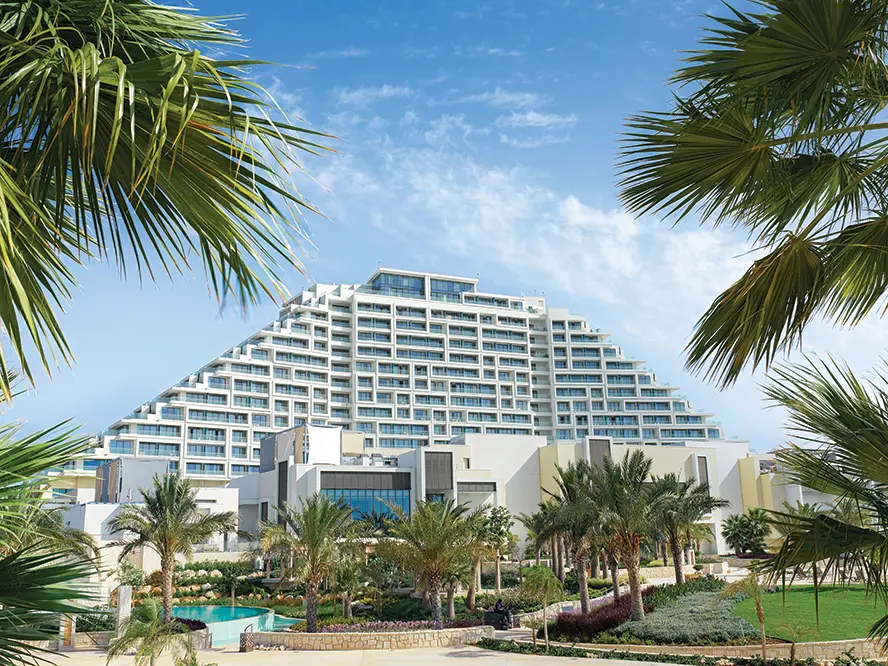 That Ho should land in Cyprus, of all places, may seem surprising – past dalliances haven’t stretched further than Australia or Japan – but in reality it was a case of seizing the opportunity after Cyprus defied vocal opposition to legalize casino gaming in 2015. It also speaks volumes for the vision of the former government, who recognized the need to think outside the box following the collapse of the Cypriot banking system in 2013. In a nation that has long relied on tourism as the foundation of its economy, the move to award a single casino license to an international operator for the purpose of developing a world-class “international casino resort” (ICR), as it is known in Cyprus, was seen as a unique opportunity to attract high-end customers who may have previously looked elsewhere for a luxury vacation.
That Ho should land in Cyprus, of all places, may seem surprising – past dalliances haven’t stretched further than Australia or Japan – but in reality it was a case of seizing the opportunity after Cyprus defied vocal opposition to legalize casino gaming in 2015. It also speaks volumes for the vision of the former government, who recognized the need to think outside the box following the collapse of the Cypriot banking system in 2013. In a nation that has long relied on tourism as the foundation of its economy, the move to award a single casino license to an international operator for the purpose of developing a world-class “international casino resort” (ICR), as it is known in Cyprus, was seen as a unique opportunity to attract high-end customers who may have previously looked elsewhere for a luxury vacation.
Still, it has taken the idea of an ICR quite some time to sink in – perceptions corrupted, perhaps, by the experience in the north of the island, where casinos have been operating for almost three decades.
The history of these northern casinos dates back even further than that, to 1974, when conflict between Greek and Turkish Cypriots foreshadowed Turkey invading Cyprus and eventually occupying an area covering 3,355 square kilometers to the north – a little more than a third of the island’s total land area. This is now known as the Turkish Republic of Northern Cyprus, although its autonomy is recognized only by Turkey, with southern Cypriots commonly referring to it as the “occupied zone”. Nevertheless, Cyprus remains to this day a divided nation, and passing between the north and the south requires crossing through passport control at one of a handful of designated checkpoints.
In 1998, a decision by the Turkish parliament to ban casinos nationwide saw existing casino operators relocate to the Turkish-controlled north of Cyprus, where 28 casinos exist to this day. IAG ventured across the north-south border to one of these casinos in the capital city of Nicosia and found a simple but effective operation that was a far cry from the luxury surrounds of its new southern competitor, but whose smoke-filled air was nevertheless busy with gamblers and the typical array of pretty waitresses in skimpy cocktail dresses.
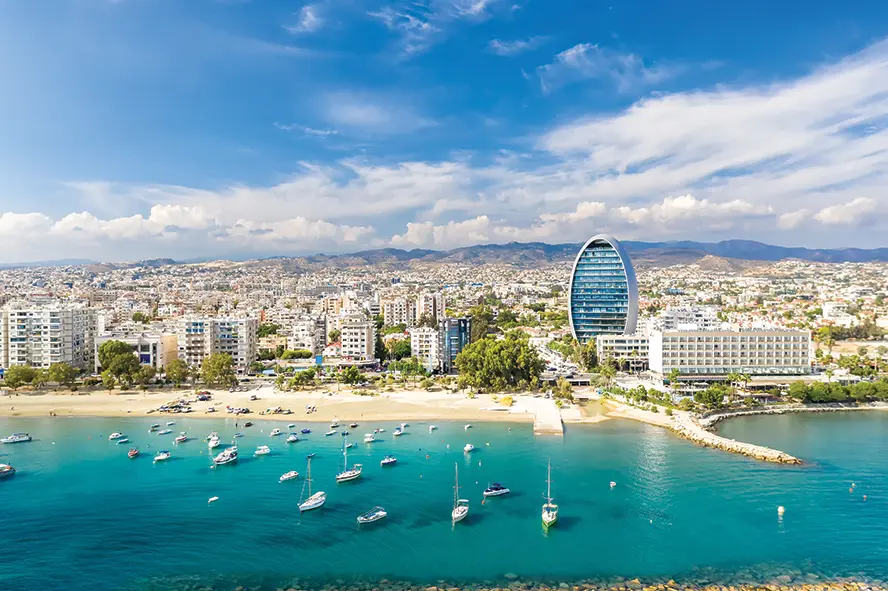
It is for this reason that Johnson notes the local Cyprus market “didn’t know what to expect” when told they would soon be home to an ICR.
“Their experience with casinos has been what they saw in the north,” he says, “as well as our [much smaller] satellite casinos we’ve been operating for the five years prior to [CoD’s] opening.
“But the reception in the market has been great. People are seeing it for the first time and starting to realize what an integrated resort can do for a destination.
“You know, we’re hoping to bring an incremental 300,000 tourists per year to this market through the ICR. We already had 1,070,164 visitors come through the doors last year, including 29,000 who attended conferences, exhibitions and other events hosted at the resort’s extensive MICE facilities, so it has been a fantastic chance to bring a product like this to the market.”
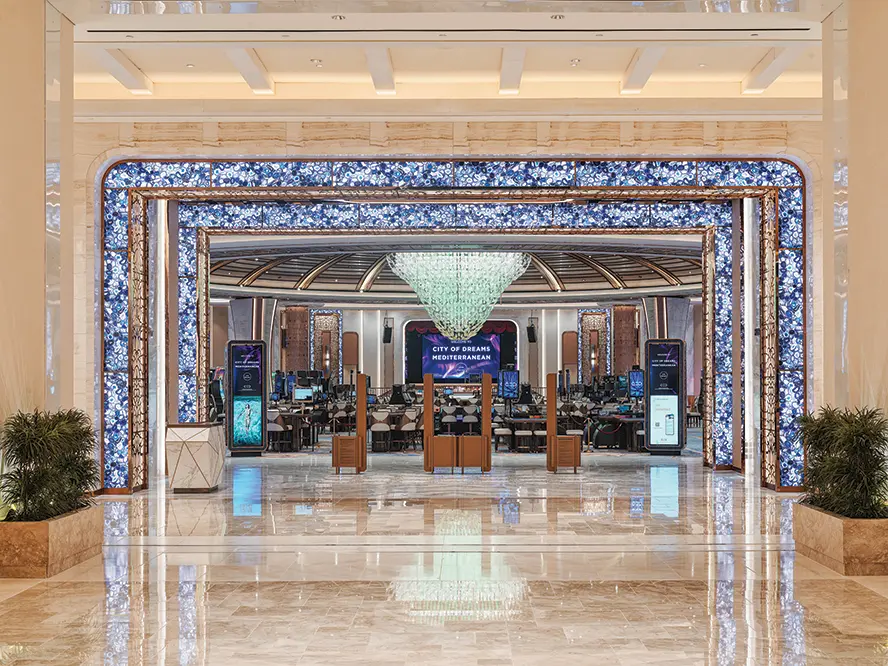 Taking its cue from the grand resorts of Macau, the Philippines and Singapore, City of Dreams Mediterranean features a total of 476 five-star hotel rooms measuring between 49 square meters and 75 square meters, plus 24 suites, the largest of which, the Presidential Suite, comes in at a mammoth 580 square meters. The combination of light wood paneling and Greek-inspired blue carpeting provides for a relaxed, unpretentious vibe that feels well attuned to the property’s near-waterside location.
Taking its cue from the grand resorts of Macau, the Philippines and Singapore, City of Dreams Mediterranean features a total of 476 five-star hotel rooms measuring between 49 square meters and 75 square meters, plus 24 suites, the largest of which, the Presidential Suite, comes in at a mammoth 580 square meters. The combination of light wood paneling and Greek-inspired blue carpeting provides for a relaxed, unpretentious vibe that feels well attuned to the property’s near-waterside location.
Standard rooms look to the north over the nearby city of Limassol or to the south towards the coast and over the property’s expansive outdoor pool complex featuring four different pool areas, a swim-up bar and a beach club.
Fitness types can get their fix in the well-appointed gymnasium, in the Adventure Park with its zip lines and extreme rope courses, or at the soon-to-launch Marcos Baghdatis Tennis Academy offering 12 state-of-the-art courts designed to host international tournaments.
Families are catered for via an array of kids’ facilities, while those looking to relax have 1,700 square meters of high-end retail therapy to enjoy, or they can take a break at Renu Spa with treatments borrowed from Morpheus at City of Dreams Macau.
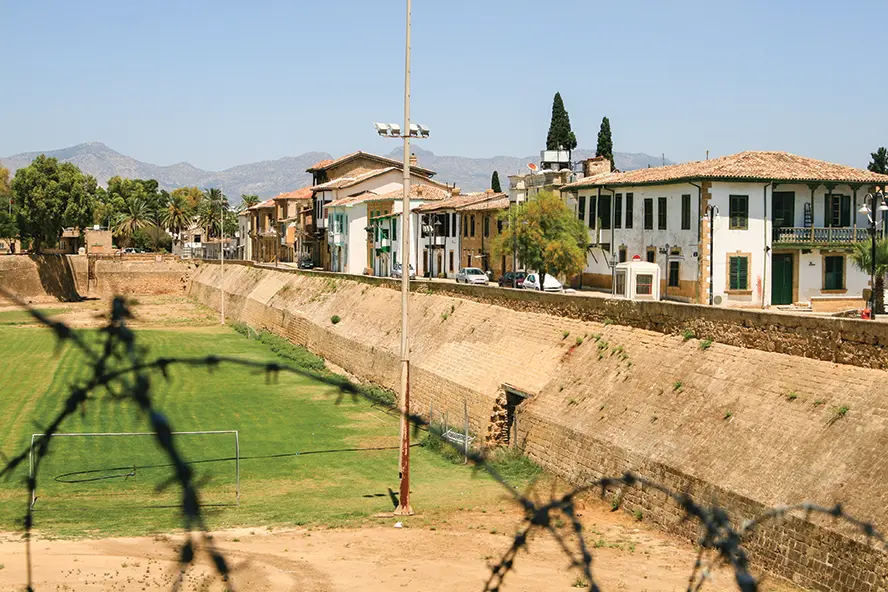 There are also eight food and beverage outlets including three signature restaurants: French Gastro Club Anaïs, Asian-based Amber Dragon and, for the time being at least, Mediterranean offering Oléa – soon to be re-imagined as a steak restaurant.
There are also eight food and beverage outlets including three signature restaurants: French Gastro Club Anaïs, Asian-based Amber Dragon and, for the time being at least, Mediterranean offering Oléa – soon to be re-imagined as a steak restaurant.
The casino itself is bright and spacious, dominated above by a massive chandelier beneath a substantial domed ceiling and echoing its Mediterranean heritage by way of speckled blue highlights along the interior walls. The 1,000 slot machines and 100 gaming tables in operation include 78 tables on the main gaming floor – roulette dominates but blackjack, mini punto banco and stud poker are also popular – and another 22 tables in the surprisingly inviting Platinum Club. Table limits start from €10 on the main floor or €2.50 for Double Zero Roulette (Single Zero starts from €5) and from €25 in the Platinum Club. Likewise, local beer and wine plus basic spirits are available for free to players at a temporary bar on the main gaming floor, with some superior options on offer in the Platinum Club.
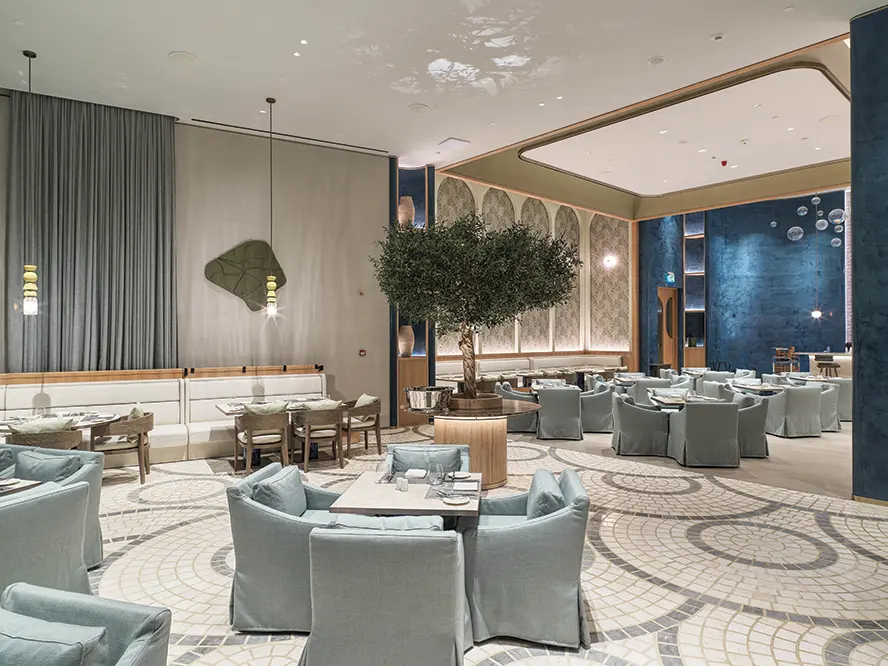 Somewhat more subdued are Melco’s three satellite casinos operating under the C2 brand in Nicosia, Ayia Napa and Paphos, each offering 50 slot machines and in some cases a handful of gaming tables, although the company is hoping to expand its Nicosia operation, pending regulatory approval, due to local demand. City of Dreams Mediterranean and the C2 Casinos are all regulated by the Casino Gaming Commission, itself established specifically to oversee the sole casino license holder in the southern Cyprus area that is controlled by the Republic of Cyprus.
Somewhat more subdued are Melco’s three satellite casinos operating under the C2 brand in Nicosia, Ayia Napa and Paphos, each offering 50 slot machines and in some cases a handful of gaming tables, although the company is hoping to expand its Nicosia operation, pending regulatory approval, due to local demand. City of Dreams Mediterranean and the C2 Casinos are all regulated by the Casino Gaming Commission, itself established specifically to oversee the sole casino license holder in the southern Cyprus area that is controlled by the Republic of Cyprus.
First launched in September 2018, the C2 casinos have played a crucial role in helping the company build a local customer base ahead of its Limassol resort opening and in training the dealers who now call City of Dreams Mediterranean home. Johnson proudly states that 78 of the property’s 100-plus supervisors came through its C2 training program.
Additional labor has been sourced from across Europe and from the Philippines – home to City of Dreams Manila – with Melco setting up a number of dealer schools and partnering with others in places such as Greece, Italy and Portugal.
Labor remains a challenge, however, given the seasonal nature of Cyprus tourism and the high cost of labor. Melco also purchased two local hotels and converted them into dormitory-style accommodation where its international labor force now resides.
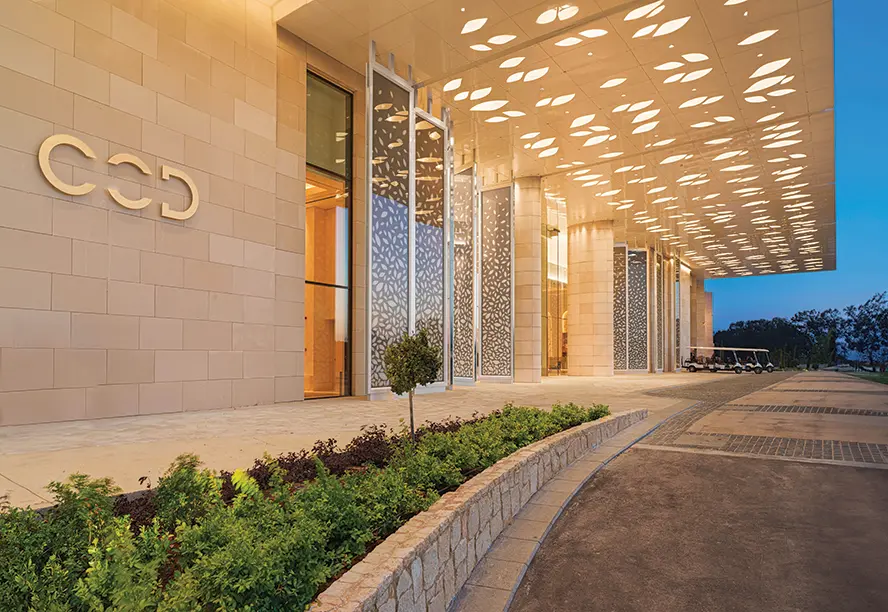 The decision to locate its three C2 casinos in Nicosia, Ayia Napa and Paphos came after all three expressed initial interest in hosting Europe’s first integrated resort when the former Cyprus government passed its 2015 Law to Regulate the Establishment, Operation, Function, Control and Supervision of Casinos and Related Matters. Limassol – the second largest city in Cyprus after Nicosia – was chosen, however, because of its status as a summer tourism hub as well as its central location: the vast majority of the island is within an hour by car.
The decision to locate its three C2 casinos in Nicosia, Ayia Napa and Paphos came after all three expressed initial interest in hosting Europe’s first integrated resort when the former Cyprus government passed its 2015 Law to Regulate the Establishment, Operation, Function, Control and Supervision of Casinos and Related Matters. Limassol – the second largest city in Cyprus after Nicosia – was chosen, however, because of its status as a summer tourism hub as well as its central location: the vast majority of the island is within an hour by car.
Limassol itself provides plenty of attractions. With a history dating back many thousands of years – Cyprus has at times been ruled by everyone from the Greeks and Romans to the Venetians and Ottomans among others – it has emerged as a popular archeological site thanks to discoveries like the Theatre of Kourion, built at the end of the 2nd Century BC.
The historical city is highlighted by more than 20km of waterfront living, while Limassol Marina – revamped just before the pandemic – is an impressive tourist draw with its vast array of restaurants and cafés.
The Limassol Tourism Agency told IAG, “Limassol is a distinct cosmopolitan seaside destination with a unique identity based on its rich history and culture, beautiful seafronts and captivating nature co-existing with contemporary facilities such as marinas, a casino, theme parks, a lively restaurant and club scene, and high-end accommodations, yet still extending the local warm hospitality which characterizes Cyprus.”
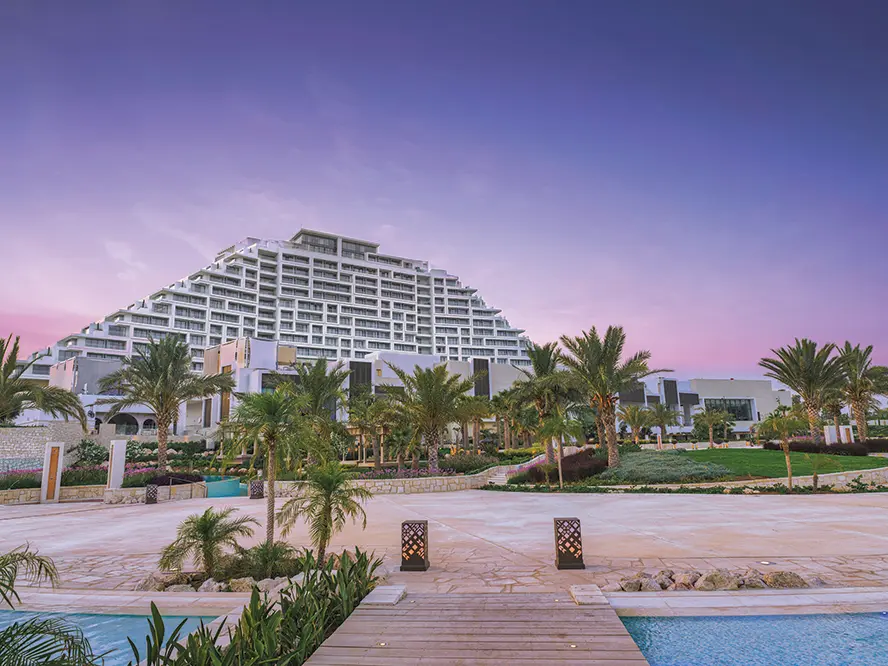 But operating a large-scale ICR in Cyprus has been a learning process for Johnson and his team since last year’s long-awaited opening.
But operating a large-scale ICR in Cyprus has been a learning process for Johnson and his team since last year’s long-awaited opening.
“The main thing we’ve learned is that this is very much a seasonal market,” Johnson explains.
“We peak in summer, so trying to manage a full-time operation 365 days a year, when the majority of the tourists come during the peak summer season, has definitely been a learning curve.
“Being an island, all of our dependency is on the flight load, and in the summer there are four times as many flights as there are in the winter periods in general.
“We also learned that it’s a weekend-driven market, similar to Vegas, so how to adjust our operations and our schedules to deal with those ebbs and flows of visitation, not just seasonally, but also weekday to weekend, is one of the things we’re still learning and adjusting to.”
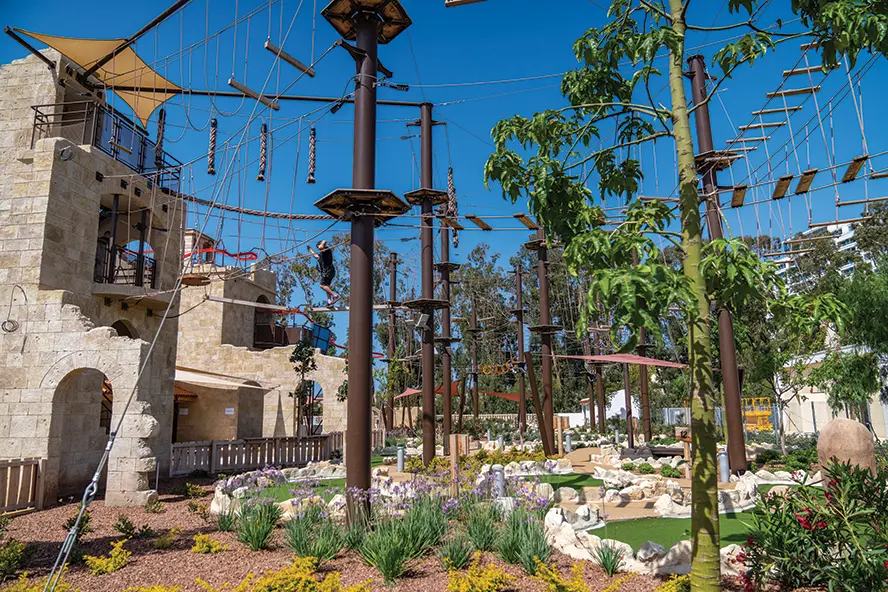 Understanding City of Dreams Mediterranean’s unique customer set has also presented challenges. Cyprus has traditionally counted the UK, Russia and Israel as its top three source markets, while Russia, Israel and the Gulf countries are considered the key casino customers.
Understanding City of Dreams Mediterranean’s unique customer set has also presented challenges. Cyprus has traditionally counted the UK, Russia and Israel as its top three source markets, while Russia, Israel and the Gulf countries are considered the key casino customers.
It seemed a lucrative prospect when development of the ICR began back in 2018, but Russia’s ongoing war in Ukraine and more recently the resumption of the Israel-Hamas war in Gaza has rained on that parade.
“There was huge pent-up demand when we first opened,” Johnson recounts.
“The doors opened in the summer and there was incredibly high demand for the first two months.
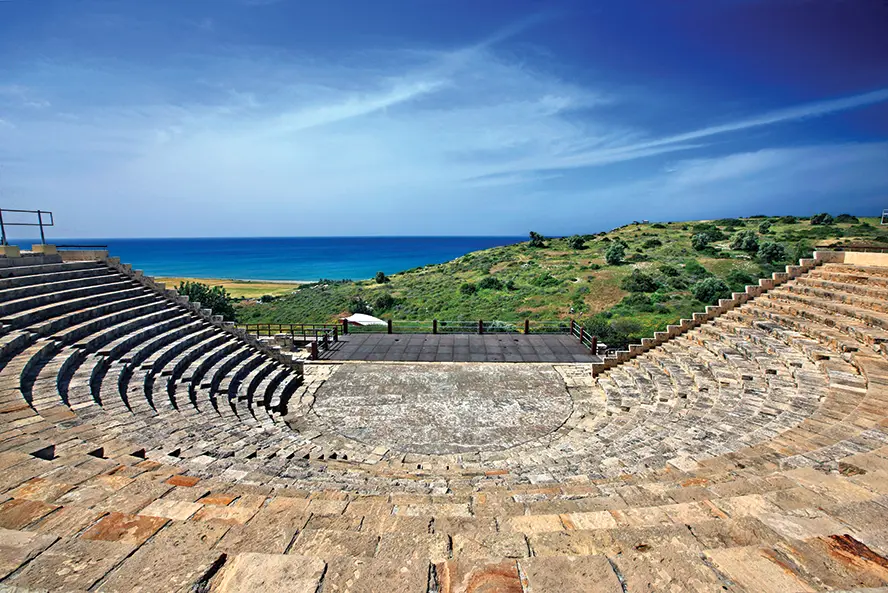 “Moving into September we had a great MICE business which carried us through the month on top of ongoing demand continuing from the tourist sector. And then in our first week of October, the conflict in Gaza began and our number one feeder market just stopped – there was basically no traffic from Israel and we hadn’t diversified yet.
“Moving into September we had a great MICE business which carried us through the month on top of ongoing demand continuing from the tourist sector. And then in our first week of October, the conflict in Gaza began and our number one feeder market just stopped – there was basically no traffic from Israel and we hadn’t diversified yet.
“As soon as the Gaza war started, we lost that market entirely, and the VIP players from the Gulf countries stopped traveling too because the whole market was in fact impacted by the threat. Couple that with the fact that Russia was traditionally one of the biggest markets in Cyprus, in particular in Limassol, and that market is almost nonexistent for us now too.
“There were challenges, so one of our goals for this year is to try to diversify. We’re looking to Europe and those markets like Germany, UK, Poland and then the Gulf countries to help with that diversification.
“But we’re starting to see some green shoots. Israel is starting to come back and we’re starting to get the word out in Europe, so as we prepare for summer, we’re hopeful that we can start to grow back to where we want to be.”
When IAG visited City of Dreams Mediterranean in February, it was on the back of industry chatter that the property was still a ghost town due to the lingering impacts of the ongoing conflicts in Ukraine and Gaza. Yet such talk was massively overstated, with the main gaming floor surprisingly busy most nights and positively bustling on weekends, including a healthy smattering of visitors from Israel.
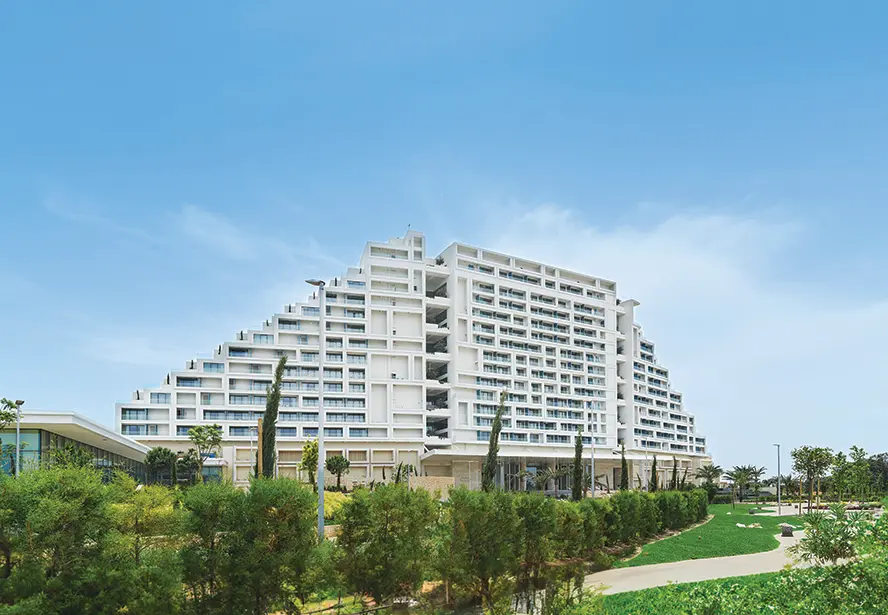 That’s a promising sign with the lucrative summer season just around the corner, although Johnson says the work is only just beginning.
That’s a promising sign with the lucrative summer season just around the corner, although Johnson says the work is only just beginning.
“Right now the focus is just on driving the VIP marketing and trying to get bigger players,” he explains. “The challenge is to get the word out to more customers.
“People underestimate the competition from the north where there are 28 casinos offering all sorts of rebates. I think our product and our service are significantly better, but they’ve got a many-year head start on us that we’re competing against, so we need to continue to bring players over and get players to experience what we’ve got to offer.”

























